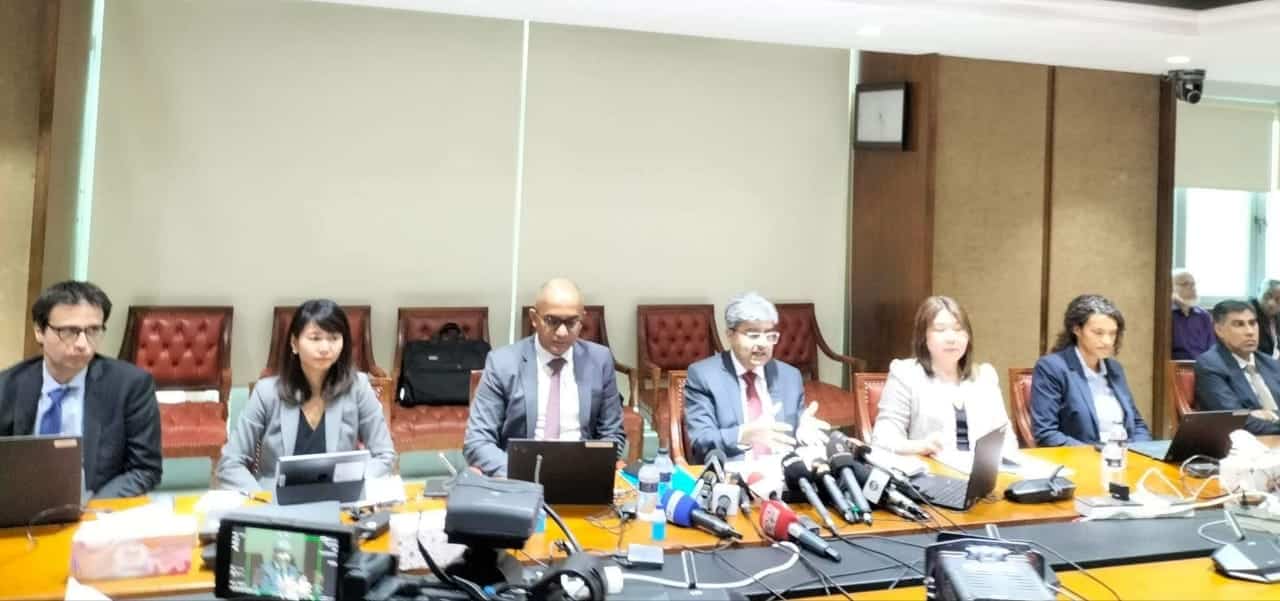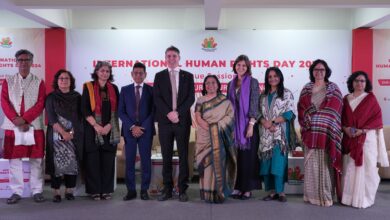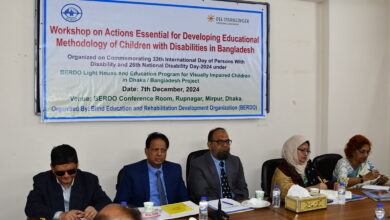IMF agrees to provide $4.5b loan for Bangladesh

The government and visiting team of the International Monetary Fund (IMF) have reached a staff-level agreement to support Bangladesh’s reform policies under a new 42-month ECF/EFF arrangement of about US$3.2 billion, and a concurrent RSF arrangement of about $1.3 billion.
The staff-level agreement is subject to IMF management approval and executive board endorsement, which is expected in the coming weeks, said Rahul Anand, who led the 10-member IMF staff mission, at a press conference at the Finance Division in the city.
“The new ECF/EFF arrangement is aimed at restoring macroeconomic stability and preventing disruptive adjustments to protect the vulnerable while promoting structural change to support strong inclusive and green growth. Reflecting Bangladesh’s large climate financing needs, the concurrent RSF, which supplements the resources made available under the ECF/EFF, will expand the fiscal space to finance climate priorities identified in the authorities’ plans, including catalyzing other financings, and reducing external pressures from import-intensive climate investment,” he added.
He said Bangladesh’s robust economic recovery from the pandemic has been interrupted by the Russia-Ukraine war, leading to a sharp widening of the current account deficit, rapid decline in the foreign exchange reserves, rising inflation and slowing growth.
“Even as Bangladesh tackles these immediate challenges, addressing long-standing structural issues remains critical, including threats to macroeconomic stability from climate change. To successfully graduate from Least Developed Country (LDC) status and achieve middle-income status by 2031, it is important to build on past successes and address structural issues to accelerate growth, attract private investment, enhance productivity, and build climate resilience,” he added.
Rahul said, “Against this backdrop, and following initial measures to maintain macroeconomic stability, the authorities have put together a program-supported by the IMF-that is expected to bolster its external position, reduce vulnerabilities, and prepare the ground for a robust and inclusive growth pick-up by scaling up much-needed social, development and climate spending.”Key elements of the program include:
Creating additional fiscal space. Higher revenue mobilization and rationalization of expenditures will allow increasing growth-enhancing spending. The impact on the vulnerable will be mitigated by higher social spending and better-targeted social safety net programs.
Containing inflation and modernizing the monetary policy framework. The monetary stance will be guided by the inflation outlook. Monetary policy modernization will promote macroeconomic stability and improve policy transmission. Increased exchange rate flexibility will help buffer external shocks.
Strengthening the financial sector. Reducing financial sector vulnerabilities, strengthening oversight, enhancing governance and the regulatory framework, and developing capital markets will help mobilize financing to support growth objectives.
Boosting growth potential. Creating a conducive environment to expand trade and foreign direct investment, deepening the financial sector, developing human capital, and improving governance to enhance the business climate will lift growth potential.
Building climate resilience. Strengthening institutions and creating an enabling environment will help meet climate objectives, support large-scale climate investments, and help mobilize additional climate financing.
At the request of the Government of Bangladesh, an IMF mission led by Rahul Anand visited Dhaka from October 26 to November 9, 2022, to discuss the IMF’s support for Bangladesh and the authorities’ comprehensive economic reform agenda.
The IMF team held meetings with Finance Minister AHM Mustafa Kamal, Bangladesh Bank Governor Abdur Rouf Talukder, Senior Secretary of the Finance Division Fatima Yasmin, and other senior government and Bangladesh Bank officials.
The team also met with representatives from the private sector, bilateral donors, think tanks, and development partners.





